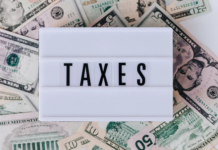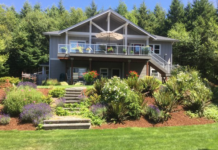Find out if you should consider buying a property or renting one!
Are you in the process of considering whether buying a property or renting one? It can be a daunting decision with financial implications that can last for years, especially if you’re a first-time home buyer.
That’s why it pays to take your time and understand what each option offers, so you can make an informed choice that best fits your lifestyle and budget.
So, in this blog post, we’ll assess the pros and cons of buying vs. renting a home – from work/life balance considerations, costs associated, and investment potential to future flexibility!
We’ll also provide some top tips on what questions to ask before making up your mind. Read everything you need to know about buying or renting a property!
How does renting work?
Calculate how much you’ll need to start a new, independent life. You could be contemplating a search for a rental. These kinds of accommodations are typically referred to as apartments for rent.
No matter where you end up calling home, rent isn’t the only monthly expense you’ll have. It is critical to have a precise budget for rental costs initially.
Therefore, you’ll need to consider some costs before renting an apartment or home.
One good thing is that you may even find some houses or apartments with furniture. Also, you’ll need to think about rent plus other house bills to pay for.
You’ll also need to go through almost the same process of choosing a house to buy because you’ll need to visit the place, ask questions, and see how much you’ll be able to pay for the time of the contract of the rental.
How does home purchase work?
The successful purchase of a new home is a major life event that calls for jubilation. As a result, you should expect a substantial investment.
The first step in buying a property is accurately assessing your financial situation. Only a select few homebuyers truly pay cash. Instead, homebuyers turn to banks for mortgage financing.
The total amount borrowed and the interest rate determine the monthly payment amount until the loan is paid in full.
Before you even start looking for a house, you need to visit a bank (or numerous banks) to get pre-approved for a mortgage.
The bank will ask you several questions about your income and expenses to determine your affordable monthly payment. You can use that number to set a range for affordable house prices.
Pros and cons of buying a property
While owning a home is a huge accomplishment, it also comes with many responsibilities, especially if the house is financed.
So, before making a significant change in your life, ensure the time and circumstances are favorable.
Therefore, you can also read the most common pros and cons of buying a home in our list below!
Pros
· Many people who pay rent hope to become homeowners eventually and would rather put their rent money toward a down payment to actually own the house;
· You can buy a home as a form of investment because investing in a U.S. home is appealing because of the property’s historical trend of rising prices;
· It may be useful to have a home of your own to bring up children if you want to have a family;
· Buying a home makes you a property taxpayer, which means you have a financial stake in the health of the local economy;
· Homeowners, in contrast to renters, have greater freedom to make aesthetic changes to their residences. You have complete creative control over your home’s inside and exterior design.
Cons
· The cost of getting a mortgage to buy a home has risen to levels not seen in decades as a result of recent interest rate hikes;
· Your mortgage application could be denied if banks and other lenders conclude that your household income is unreliable and that you do not have enough savings to pay unexpected costs;
· You’ll need to be able to make a down payment and to qualify for a traditional mortgage, borrowers typically need to put down 20% of the home’s worth;
· If you want your home’s worth to rise and to have a pleasant place to call home, you’ll need to keep up with the maintenance.
Pros and cons of renting a property
Now that you know the pros and cons of buying a house or apartment, you can learn the pros and cons of renting a house. So, read our list below to find out!
Pros
· You don’t need to make long-term commitments when renting;
· There is no need to keep up with house maintenance if you don’t own it;
· You won’t need to pay for unexpected home repair costs;
· There are no down payments to rent.
Cons
· When renting, you may need to give the house back at any time stipulated on the contract and have to look for another place to live;
· You may not be able to have pets or other things you may want in your house;
· If there is a problem with the house, you’ll need to wait for the landlord to fix it.
Should I buy a property or keep renting?
It can make sense to buy a property if you have the financial means to do it and it meets your life goals. Also, there are some things you need to consider before you decide to buy a house. For example:
· You are buying in an area where home prices are predicted to remain steady or increase, or you intend to live in the house for a long time and can afford to ride out any price drops that may occur over the next several years;
· You have enough money stashed up for a down payment (and won’t go into debt if an unexpected expense arises);
· To pay the mortgage, you could depend on your regular paycheck (which typically includes property taxes and payments against the loan);
· It’s clear that you’re aware of, and prepared to take care of, all the necessary house maintenance tasks (or hire someone else to do them).
While owning your own house is often seen as a significant life achievement, it is not always the best financial or emotional decision.
So, you’ll need to check your finances and learn more about the tools that can help you buy a home before you decide, such as housing assistance, investments, and others!

































